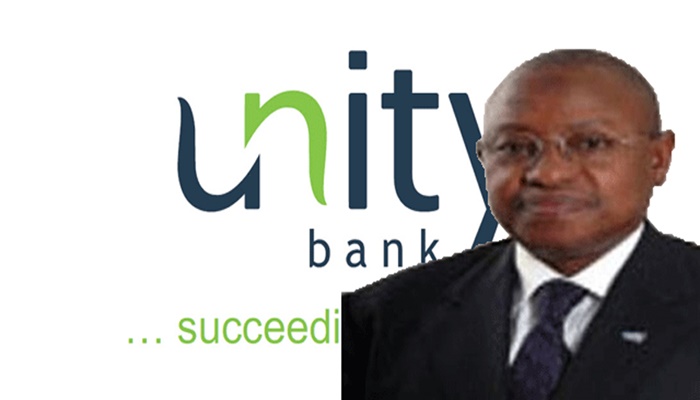
Amidst macro economy challenges, total of six Deposit Money Banks (DBMs) have reported a N33.9 billion decline in profit after tax.
According to data gathered by Business247 News Online, the six financial institutions profit for the half year (H1) ended June 30, 2016 dropped by nearly 28 per cent.
These six commercial banks had reported a profit of N121.87 billion in half year ended June 30, 2015 as against N87.96 billion recorded in half year ended June 30, 2016.
The half year results is coming on the background of general weak gross earnings in the financial services industry, increase in impairment charge for credit losses due to dwindling global oil prices and hike in operating expenses.
The nation’s economy, in the half year, has recorded rise in inflation to 16.5 per cent in H1 2016 as against 9.2 per cent H1 2015, reflecting the impact of fuel price hike and scarcity as well as foreign exchange shortages on domestic prices.
Also, the country’s Gross Domestic Product (GDP) as declined from 6.3 per cent in 2014 to 2.15per cent in 2015 and -0.36per cent in first quarter of 2016.
The breakdown shows that Unity Bank Plc recorded the highest decline of 70 per cent from N5.5 billion in H1 2015 to N2.35 billion in the period under review.
It was followed by Ecobank recorded top decline in profit for the half year under review. The bank profit dropped by 35 per cent or N17 billion from N48 billion in H1 2015 to N31.08 billion in H1 2016.
Fidelity Bank Plc’s profit dropped by 32 per cent or N2.6 billion from N8.2 billion to N5.59 billion in H1 2016.
Sterling Bank Plc and Diamond Bank Plc recorded a decline of 26 per cent in profit from N5.4 billion and N12.15 billion to N4 billion and N9.05 billion in H1 2016 respectively.
The lowest drop in profit among the six financial institutions was First Bank of Nigeria Holdings Plc, shedding 11 per cent or N4.2 billion in profit from N40.06 billion in H1 2015 to N35.86 billion in H1 2016.
International Monetary Fund (IMF) had suggested that growth in the second half of the year may not be rapid enough to counter the impact of the macro-economic challenges in Nigeria.
Also, Fitch Ratings in a new report said banks operating in Nigeria are likely to face more challenges as interest rates continue to rise.
The Central Bank of Nigeria (CBN) recently increase interest rate from `12 per cent to 14 per cent, a decisive move to curb inflation, boost liquidity and stabilize the foreign exchange market.
According to Fitch report, benchmark interest rates, which hovered around six per cent from 2001 to 2011, have risen steeply.
Analysts at Fitch Ratings were however optimistic that despite the rise in operational costs and loan impairment charges, operating in the country will remain profitable in 2016.
The report explained that, “Rising rates are likely to put additional pressure on banks’ asset quality. Almost all lending is extended at floating rates and banks should be able to reprice their loans quite quickly but borrowers will face more difficulties in servicing their debts.
“Impaired loans are already high in the Nigerian banking sector, where average non-performing loan ratios reached 6.2 per cent at end-March 2016, partly reflecting the impact of currency depreciation on businesses as well as higher oil-related problem loans at some banks.
“We also expect loan growth (excluding foreign-exchange translation effects) to slow during second half of 2016 and into 2017. Banks have already tightened underwriting standards as economic conditions in the country worsen.
Gross Domestic Product (GDP) contracted by 0.4 per cent year on year in first quarter of 2016 and we forecast GDP growth to fall to 1.5 per cent in 2016 (2015: growth of 2.7 per cent).
“With rising rates, excess liquidity in the banking sector is, in our opinion, likely to flow into additional holdings of higher-yielding government debt. Government securities represent about 16per cent of total Nigerian banking sector assets and 10-year senior bonds yield about 15.3per cent.
“Despite the rate rise, real interest rates remain negative when considering inflation, which reached 16.5per cent in June 2016. Nevertheless, for the domestic banks government bonds represent low-risk, low capital intensive investments. Lending, particularly in foreign currency, carries higher risks.
“The rate increase will also lead to higher funding costs for the banks. This and the switch away from loans and into fixed-income government bonds are likely to squeeze Nigerian bank net interest margins.
“We also expect operating costs and loan impairment charges to rise but still expect Nigerian banks to remain profitable in 2016,” the report added.







Comments are closed.